The mid-September weather was spectacular, and the energy was electric as a sold-out crowd of school board members and other education leaders gathered in Chicago last week for the 2023 CUBE (Council of Urban Boards of Education) Annual Conference.
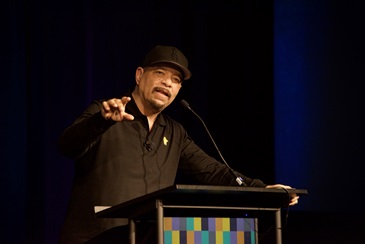 Legendary rapper, actor, and author Ice-T, who delivered a frank and moving closing keynote, described the 55th CUBE event, calling it "the largest and strongest in-person conference for school board members focused on urban trends in the country." This year's convening continued CUBE’s mission to highlight the evolving strategies that school leaders are implementing to address the unique educational challenges in the nation's urban centers.
Legendary rapper, actor, and author Ice-T, who delivered a frank and moving closing keynote, described the 55th CUBE event, calling it "the largest and strongest in-person conference for school board members focused on urban trends in the country." This year's convening continued CUBE’s mission to highlight the evolving strategies that school leaders are implementing to address the unique educational challenges in the nation's urban centers.
During his conference-opening State of Urban Education address, CUBE Steering Committee Chair Gill Garrett acknowledged "the progress made and the challenges that persist," including ingrained disparities that often fall along racial and socioeconomic lines and have existed for decades. These conditions have a direct impact on the quality of education that students receive, he said.
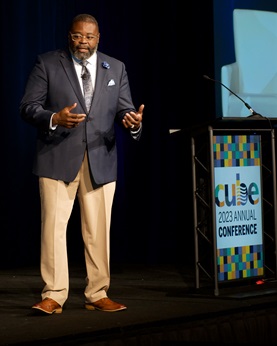
But Garrett insisted that as the policymakers, school board members “are the state of urban education.” He demanded that conference attendees own their role as “the leaders of leaders” and stand in the gap to fight for children: "Don't leave another student behind. Find a way." To those who are not committed to the work required, Garrett said, move on: "If you don't want to be in this fight, take an early flight."
The three-day CUBE Conference offered more than 20 education sessions and presentations to bolster and expand attendees' knowledge and skills on such issues as supporting trauma-informed educators and trauma-sensitive schools, disaggregating, monitoring, and making public valuable student assessment data, and developing a racial equity policy that centers the voices of students. New York State School Boards Association leaders presented a session on communicating school improvement initiatives while defending against attacks that mischaracterize critical work.
This year's site visit to Dolton West School District 148, located in the Chicago south suburbs, highlighted the launch of the preK-8 school district's new STEAM (Science, Technology, Engineering, Arts, and Math) equity initiative with a focus on making STEAM culturally relevant to students.
CUBE visitors to the district's Lincoln School, including NSBA President Kristi Swett, Immediate Past President Frank Henderson, and CUBE Chair Garrett, were warmly received by Superintendent Dr. Kevin Nohelty, Deputy Superintendent Dr. Sonya Whitaker, and Board President Larry Lawrence.
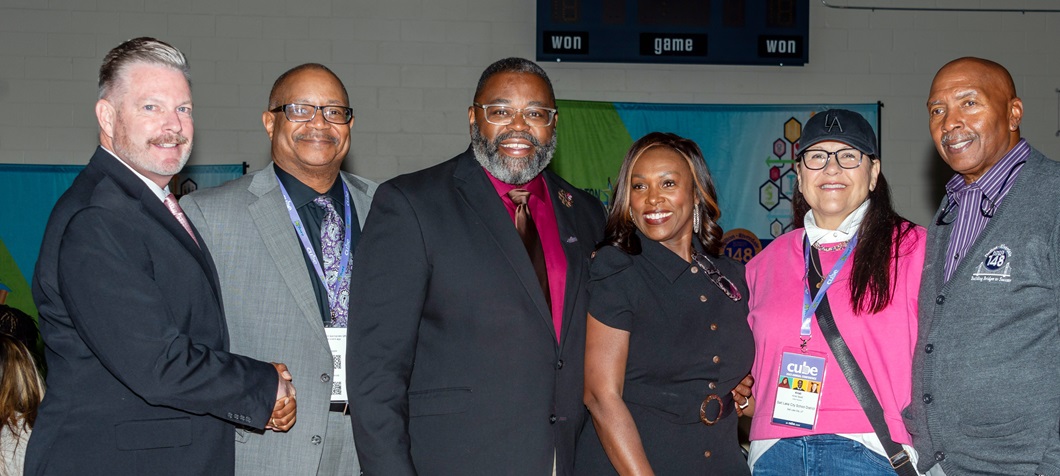
Enthusiast student performances featured throughout the conference included talented young DJs from the Dolton West School District, an angelic choir from Southland College Prep Charter High School, and the show-stopping, award-winning Mighty Marching Machine from Rich Township High School District 227 in Matteson, Illinois. And yes, the Marching Machine brought its baton-twirling dancers and flag-waving color guard.

A panel of high school- and college-level aspiring teachers from PDK International's Educators Rising program discussed issues including student mental health, school and grade pressures, and their passion for becoming the next generation of classroom teachers. Educators Rising operates with "an intentional effort to grow more teachers who look like their students," said PDK's Lisa Rollins.
Awards were presented this year to Missouri's Ferguson-Florissant School Board, selected as the 2023 CUBE District of the Year, and to Dr. Jonathan Hodges, a 21-year veteran of New Jersey's Paterson School Board. Hodges, a retired physician, was named the Elijah Benjamin Mays Lifetime Achievement Award recipient.
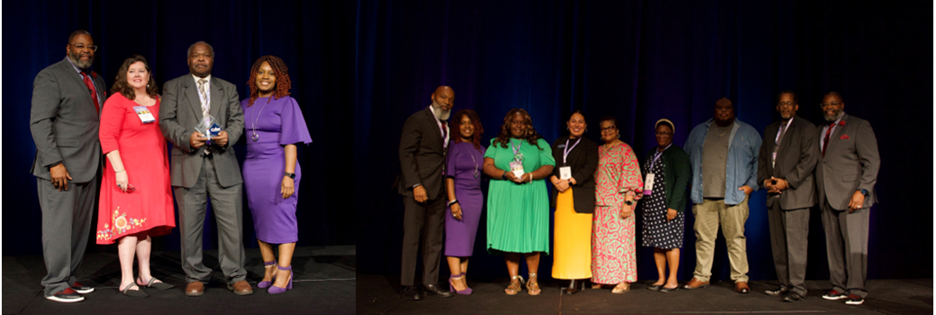
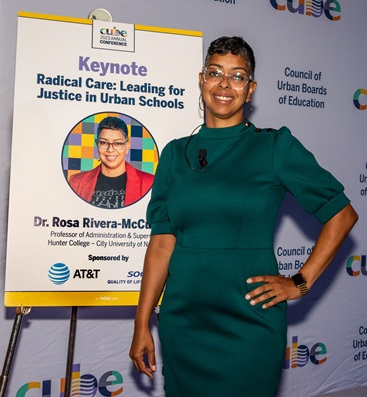
Friday keynote speaker Dr. Rosa Rivera-McCutchen, a professor of Administration and Supervision at CUNY Hunter College, discussed the need for a "radical care" approach to make urban schools work for all students. She challenged school board leaders to use their power, position, and access to disrupt existing inequalities "and to work to create the schools that our brilliant kids deserve." (Read Dr. Rivera-McCutchen's article in October’s ASBJ.)
Ice-T, the gangster-rap pioneer who spoke Saturday, acknowledged that he might seem like a surprising choice to appear before school board members and other K-12 professionals. He has, in fact, lectured at prisons, libraries, and colleges, including Harvard, Princeton, and Stanford. His challenging early life — he lost both parents before the age of 11, attended a tough Los Angeles public high school, and while never in a gang, he was considered a gang affiliate who learned to coexist among rival groups — offers a stark reminder to never overlook students because of their background or circumstances. “Any one of your students can do anything when they make a decision to make a change,” he said.
Although the Grammy Award winner described himself as a “pretty good” student academically, especially in math (“I knew I needed to understand money”), who also was artistically and athletically inclined, he said he “didn’t realize how important school was ‘til later in life when I got out in the real world.” Looking back, he said he’d urge schools to offer classes about the greatness of every race, culture, and gender “so that we can appreciate each other.” That understanding, he said, “could change the world.”
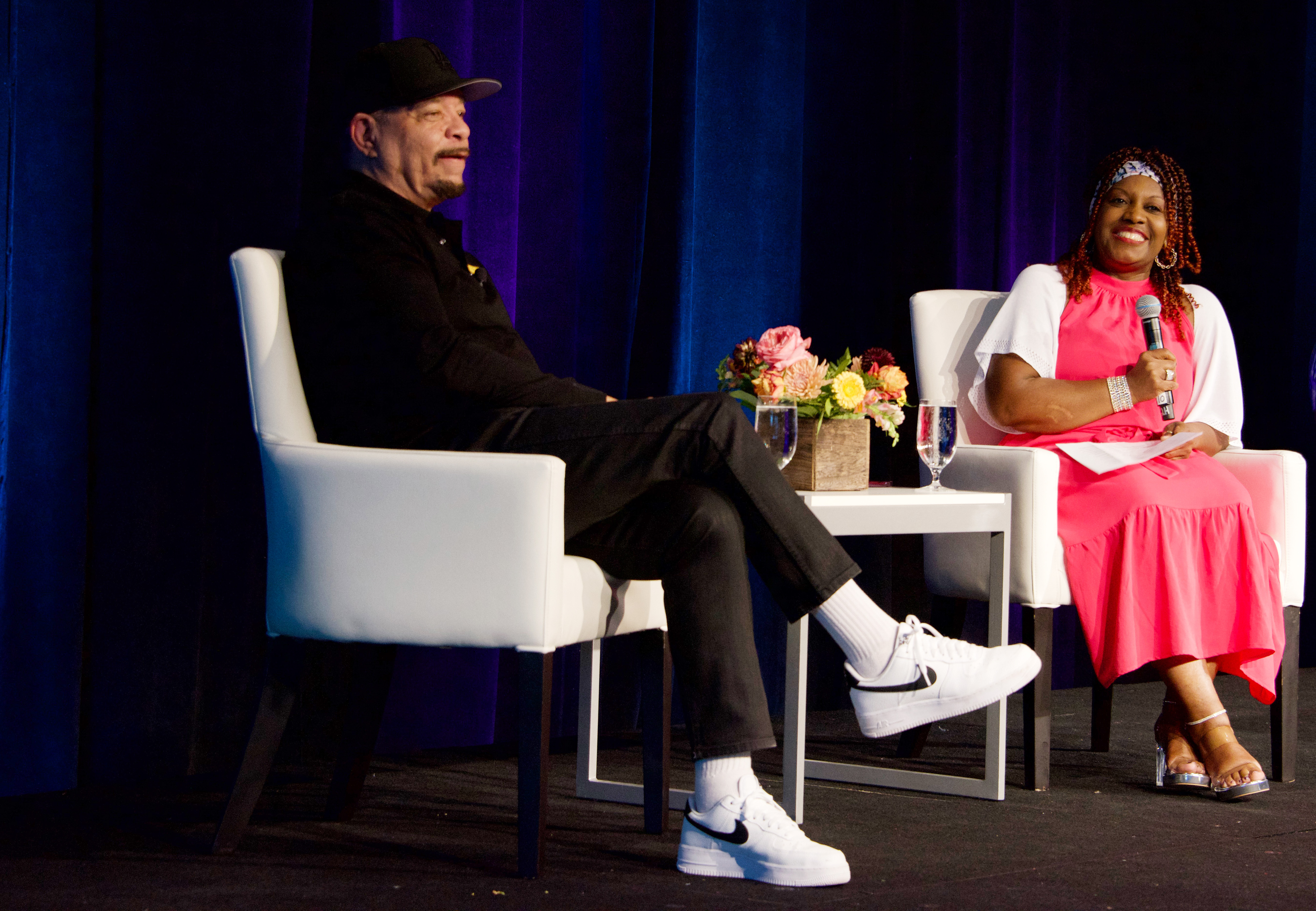

Share this content